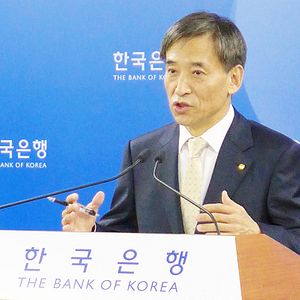With Western economies unable raise their sluggish growth figures and Beijing committed to rebalancing, South Korea’s export-oriented economy faces significant challenges. In addition to these external problems, the Sewol ferry disaster in April has left a significant imprint on the domestic market, simultaneously lowering people’s confidence in the government and depressing consumption.
To buoy the faltering economy, Minister of Finance Choi Kyung-hwan proposed a massive $40 billion stimulus package last month. Following the government’s lead, the Bank of Korea announced last week that it will lower interest rates for the first time in 15 months to further encourage investments and induce a depreciation of the won. The coordinated fiscal and monetary policies of the central bank and Finance Ministry hint at the centralized governing model that has driven South Korea’s economic growth in the past. However, these policies are not without their inherent risks and much more needs to be done to spur growth.
Broadly speaking, President Park Geun-hye’s economic policy revolves around two objectives: reducing regulation to spur investments and raising household income to foster consumption and reduce privately held debt. So far, the administration’s policy orientation is most evident in its relaxation of the restrictions on stock movements and mortgage loans. However, even these initial moves were not without controversy. While supporters of the government have argued that limited deregulation in the financial sector will lead to job creation, many detractors argue that encouraging higher borrowing could further exacerbate household debt, which has doubled over the past decade to almost $1 trillion.
As late as the second week of July, the Bank of Korea had held firm on its interest rate despite having not met its inflation targets. However, there were mounting calls from ruling party lawmakers, undeterred by warnings of a debt trap, for South Korea’s central bank to engage in expansionary monetary policy to bolster the government’s drive for investment growth. Swayed by the government’s aggressive fiscal policy and political support for the bank, Bank of Korea Governor Lee Ju-yeol finally declared his support for measures aimed at reversing weak sentiments on July 23.
However, because major investment bodies like Goldman Sachs and Nomura Holdings had been anticipating the cut, the rate change last week produced little change in the market. In fact, contrary to macroeconomic expectations, the South Korean won appreciated 0.75 percent, further exacerbating concerns for the country’s export sector.
Experts and other observers have been divided in how they feel the central bank should now proceed. Some have suggested that further cuts will be required to create the desired effect. However, others pointed out that the anticipated tapering of the U.S. Federal Reserve’s quantitative easing in October will achieve similar outcomes. Either way, attention is now on how the fiscal and monetary policies of the last two months will influence household debt and income over the long term.
While policymakers are tinkering with rates and regulations, a study recently published by the Korea Institute for Health and Social Affairs suggests that the problem may be more deeply-seated. Its survey of 1,000 people in December 2012– long before the Sewol ferry disaster– found that 60 percent of respondents felt socio-economic insecurity. Of these people, more than half cited insufficient income or the unstable job market as the root cause of their worries, reflecting broader structural issues adversely affecting consumer confidence.
All this goes to show that moving forward Seoul may be facing a greater challenge than it is anticipating.

































